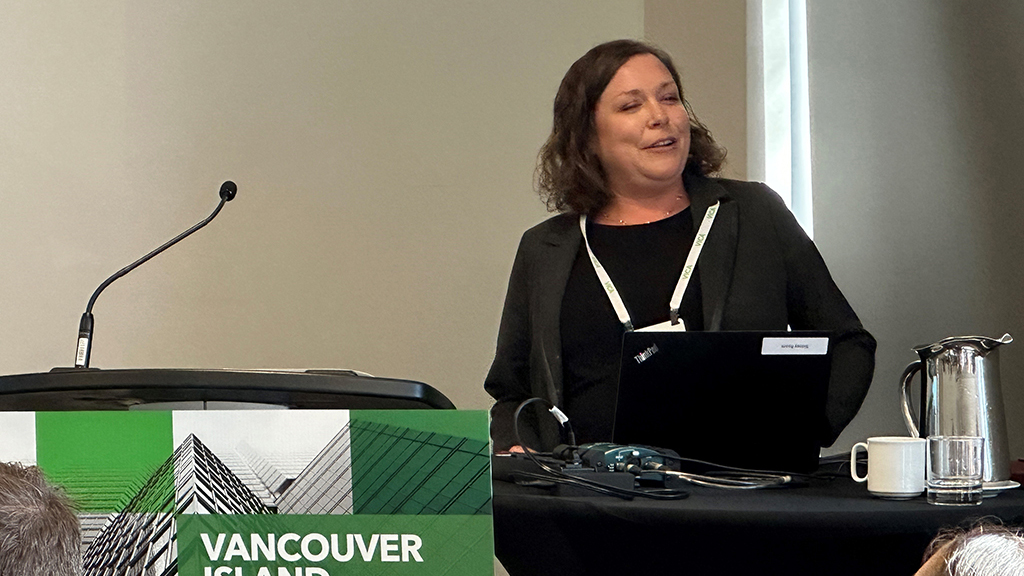Both overseas workers and construction employers have more paths to a job in Canada than they may be aware of.
Immigration, refugee and citizenship lawyer Sarah Goodman spoke at a session titled Navigating Immigration in Construction at the (VICA) annual conference in Victoria recently.
Goodman said construction employers have a variety of options when trying to bring workers to Canada, including pathways leading to temporary employment or permanent residency.
“Right now there is preference given to construction workers given in both the federal and provincial permanent resident pathways. With respect to temporary pathways, we have trade agreements with a number of countries that allow a variety of construction workers to get work permits in Canada,” she said.
Goodman also listed off international experience class, working holiday and Francophone mobility work permits as possible pathways into the country.
The Francophone permit applies to anyone with intermediate French language ability and a job offer, excluding jobs in Quebec.
She added both the federal and provincial governments have recently started occupation-based draws in the construction industry.
“So if someone is currently working in Canada in a skilled construction position or even if working outside Canada (in a similar position) they may be able to emigrate to Canada as a permanent resident quite quickly.”
Some individuals with skilled trades backgrounds looking to emigrate can also obtain a Red Seal, she said.
“We have something called equivalency here, where someone who has skilled trades work experience overseas can get a former employer to attest to how many hours they have, they are able to fast track directly to the Red Seal exam without having to do any additional hours. It’s a straightforward and user-friendly process,” Goodman said.
She also cautioned the processing time involved in bringing someone to Canada from overseas varies with their place of origin.
“Work permit processing times vary across the world according to which visa office they’re being processed on. That goes for permanent residents as well, because if the applicant isn’t located in Canada, their application will be processed by an office outside of Canada. We typically see processing times vary based on what’s going on in the world at any given time,” Goodman said.
India and the Philippines have long sent workers to Canada and processing times are generally quick with visa offices able to handle a high capacity of applications, she said. At the moment wait times for those attempting to come to Canada from Ukraine and surrounding countries and the Middle East are much longer than usual.
“At the end of March a program expired which allowed Ukrainian nationals to apply for an open work permit to come to Canada called the Canada-Ukraine Emergency Travel Program. These folks could come apply for an open work permit here but often they were located in countries outside of Ukraine for safety reasons and are applying to come to Canada from those countries, which has caused the processing time in those countries to balloon,” she said.
Goodman recommended if construction firms want to hire overseas workers, their first step should be to learn which nations have trade agreements with Canada.
“You want to familiarize yourself with the countries that are covered by these trade agreements as well as through the working holiday program, because if you receive an applicant from one of those countries, they may be able to qualify for one of those Labour Market Impact Assessment (LMIA) permits,” Goodman said.
Many LMIA permit programs also require the employer to pay the worker the median wage rate for the occupation, she said, so foreign workers do not put downward pressure on the wages of Canadians and permanent residents.
Goodman also had advice for overseas workers looking to make the move to Canada and work in the construction industry.
“Talk to an immigration lawyer or an experienced and licensed immigration consultant to develop a pathway in order to come here. You really need to plan ahead and figure out what you need to have in place in order to make your dreams come true,” she said.



Recent Comments
comments for this post are closed